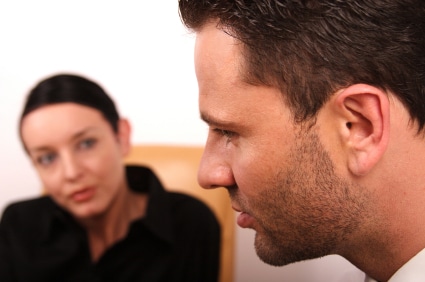We understand you may be hurting. You may feel alone, suffering under an unbearable sense of grief, sadness, hopelessness, or isolation. But you are not alone.
In the United States, 16 million Americans battle depression every year, according to the National Institute of Mental Health (NIMH). Individuals with depression fight against persistent feelings of loneliness, pessimism, and worthlessness that cause normal daily interaction with family and friends to seem daunting.
Depression affects everyone differently, but thankfully this mental health disorder is treatable. In our residential treatment programs and outpatient treatment programs, we provide the effective depression treatment needed to ensure sustained recovery.

What Does Depression Look Like?
- Restlessness, fatigue, or lack of motivation
- An increase in irritability or impatience
- Fear of expressing strong emotions or constant anxiety about the future
- Constantly feeling unappreciated by others
- Processing anger through a pattern of impulsive thinking or brash judgments
- Reoccurring or persistent headaches, muscle aches, body pains, and gastrointestinal problems
- Socially isolating yourself from family and friends
- Feeling trapped or showing a pattern of pessimistic comments and behavior
- Not eating or binge eating
- Preferring to do things alone instead of with others
- Having zero motivation for new activities, new ideas, or new relationships
Major Depressive Disorder and Persistent Depressive Disorder
- Significant changes in appetite resulting in marked weight loss or weight gain
- Recurring difficulty falling and staying asleep, or oversleeping
- Increased anger and agitation or an inability to relax for extended periods of time
- Extreme fatigue, lethargy, or loss of energy
- Sadness, dejection, despair, loneliness, or feelings of worthlessness
- Inability to think, focus, or make decisions
- Frequent or recurrent thoughts of death, suicidal thoughts and plans, or suicide attempts
- Anxiety or restlessness

Our Depression Treatment Center
Without the proper depression treatment, the frequency and severity of depression often increases over time, lasting from weeks to a few months to many years. It may be challenging for those with severe depression to take action to help themselves, but gaining awareness and learning to identify their symptoms through depression treatment can start the recovery process.
Effective major depression treatment can take on many combinations of individual therapy, group therapy, antidepressant medication, dietary modifications, exercise, and mind/body healing approaches. At our depression treatment center, treating depression involves an initial comprehensive evaluation so we can understand the needs of each of our clients and create customized depression treatment plans. Some types of depression therapy we utilize include cognitive behavioral therapy (CBT), dialectical behavior therapy (DBT), and mindfulness.

If you’re struggling, take the first step today to break the cycle of depression. Contact our depression treatment center at (310) 455-5258.
Treatment for depression requires comprehensive care, an active client-clinician connection, and ongoing support. During our depression residential treatment and outpatient treatment programs, Clearview’s expert staff ensures that clients receive the individualized support needed to have the best chance at sustaining long-term recovery.
Additionally, depression often co-occurs with drug and alcohol addiction. If you or a loved one are struggling with addiction along with depression, our specialized dual diagnosis treatment program will address both disorders.
If you or a loved one is struggling, take that first step today to regaining control of your self-identity and breaking the cycle of depression.
Depression Treatment Programs at Clearview
- Addiction with Co-Occurring Mental Health: As a premier treatment center, our treatment program for addiction with co-occurring mental illness offers residential treatment for people of all genders struggling with an addiction and a variety of mental health conditions, including depression. Our treatment team has vast expertise in treating complicated dual diagnosis cases, providing clients with the specialized treatment they need to make a complete recovery from their addiction and co-occurring mental illness.
- Outpatient Treatment Programs: Clearview’s Outpatient programs offer personalized outpatient treatment via partial hospitalization program (PHPs) as well as intensive outpatient programs (IOPs). Our programs treat addictions, dual diagnosis, and a multitude of mental health disorders, including depression.
Additionally, Clearview’s Women’s Mental Health program is a specialized residential treatment program for women and people of diverse genders who are struggling with borderline personality disorder (BPD) and emotional dysregulation. Dialectical behavior therapy (DBT) is the primary mode of treatment used in our women’s mental health program, and it’s one of the only programs like it in the country.
Depression FAQs
Yes. Taking control of your depression takes time but small steps can often make a big difference. Trying a few of the steps listed below may help alleviate some of your depression symptoms:
- Seek professional help
- Exercise
- Go to a movie, concert, sporting event, or activity that you enjoy
- Join a local sports league, volunteer in the community, or participate in a hobby you enjoy
- Set realistic goals break up large tasks into small ones, setting priorities and doing what you can when you can
- Spend time with and confide in a trusted friend or relative
- Treat yourself to your favorite food or dessert
- Eliminate clutter or donate unused items to charity to create a refreshed sense of space
- Meditate
- Make dietary changes incorporating more fruits and vegetables
If you need depression treatment, please contact us today at (310) 455-5258 or fill out our contact form.
